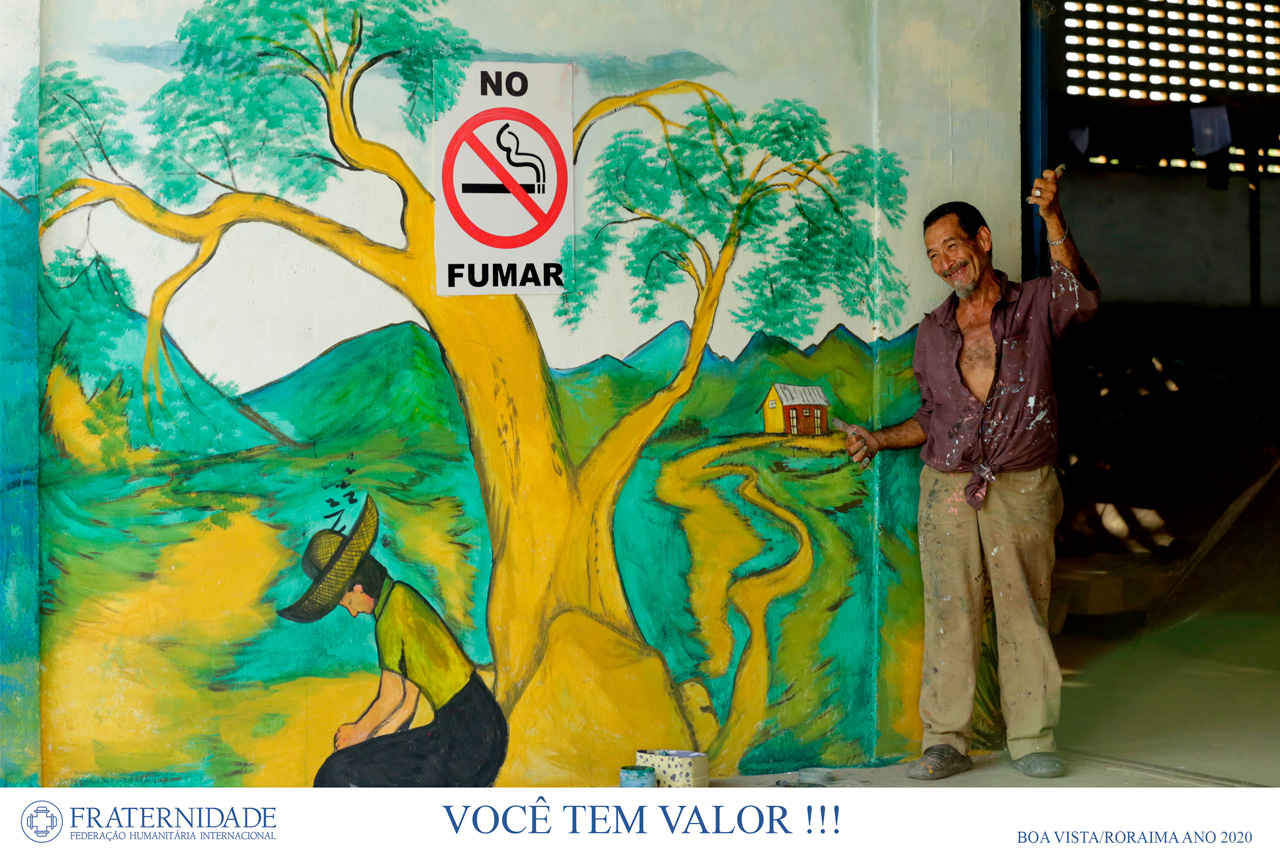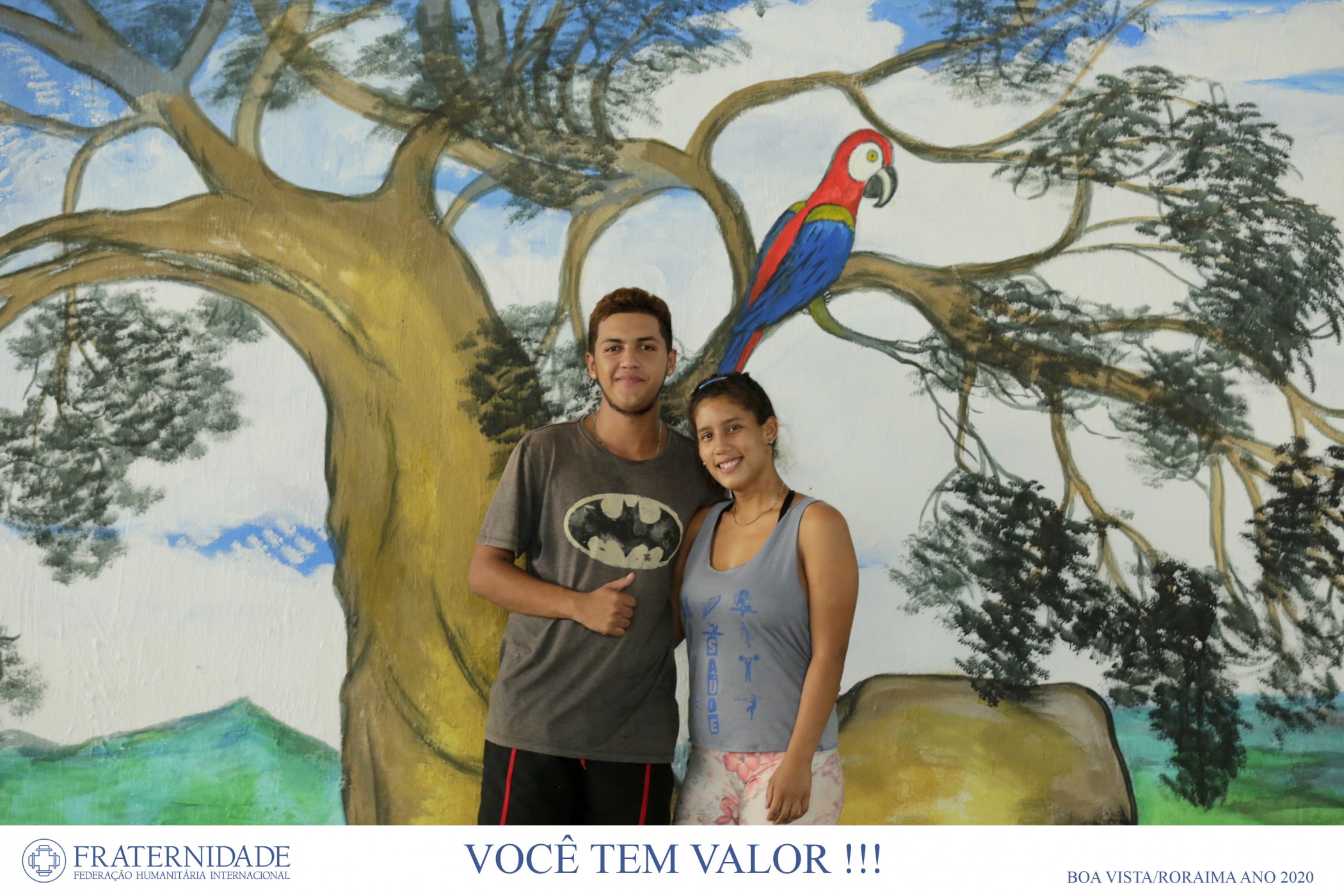Photography can be a tool for framing and (re)building realities for the Venezuelan refugees welcomed into shelters managed by the Fraternity – International Humanitarian Federation (FIHF)with the support of theUnited Nations High Commissioner for Refugees (UNHCR).
In the Tancredo Neves shelter, in Boa Vista, a team of missionaries of the organization promoted activities of the project with the title ‘Art as an expression of self,’ during the period from March 11 to 27, with the goal of ‘humanizing’ the space through the hands of those in the shelter themselves – and photography emerged as a spontaneous impulse that added synergy to the rest of the artistic activities.
The refugees did paintings on the walls, carpentry, handicrafts, and cultivated plants. At a certain moment, a man asked one of the missionaries photographing the activities when she was going to do a portrait of him. This question encouraged the same desire in others around them. A young man, asked by the missionary what the importance was in being photographed, responded: “it is because people have value.” And so the missionaries began to do portraits of the refugees, showing them the results and also the photographs of the activities carried out in the common areas.
“Afterwards, the rest who were there also wanted one, and one photo led to another. They could see themselves and were having fun, smiling. And more people were coming, wanting to be photographed,” says the psychologist and missionary of the Fraternity – International Humanitarian Federation (FIHF), Fátima Cavalcante, one of the facilitators of the workshop.
In total, 30 people who requested the record were photographed. Later, the photographs had the phrase “You have value” printed on them, and were presented to those in the shelter.
Fátima emphasizes the importance for the refugees to feel they are recognized, welcome, and valued. In this sense, a photograph can be a way “to be admired by the look of another and by the image of the self that can be seen and admired, in a game of smiles. That has a direct impact on the self-esteem of the refugees, because when they connect with the feeling of value, with the uniqueness of each being, and feel themselves to be welcomed, respected, and valued, each person reconnects with their own inner world,” she says.
Born of an empathetic relationship between the photographed and the photographer, a photograph is capable of showing the beautiful beyond appearances, believes the psychologist.







































